As with most diets, there are many allowed fruits on the low histamine diet. I generally recommend people start with just blueberries, and work up to apples, raspberries, and kiwis before reintroducing other fruits.
Some people may not be able to tolerate a few of these fruits due to oxalate, blood sugar, or salicylate issues, but there will likely be at least one low histamine fruit on this list that you can tolerate; I can almost guarantee that.
In fact, I’d even categorize many of these as antihistamine fruits, meaning that they contain substances such as quercetin, which stabilize the mast cells, those which release histamine throughout the body.
If you're still feeling confused as to what histamine is and why it's wreaking such havoc upon your systems, please check out my low histamine diet plan primer. Below are 17 fruits that are low in histamine!
Medical Disclaimer: as with everything on this site, this article is provided for information only. I strongly urge you to speak with your doctor or a licensed medical professional in order to assess whether or not you have histamine issues, and/or which foods cause a histamine release for you personally. Every body is different, and some people will tolerate different foods than you do. Please keep comments respectful.
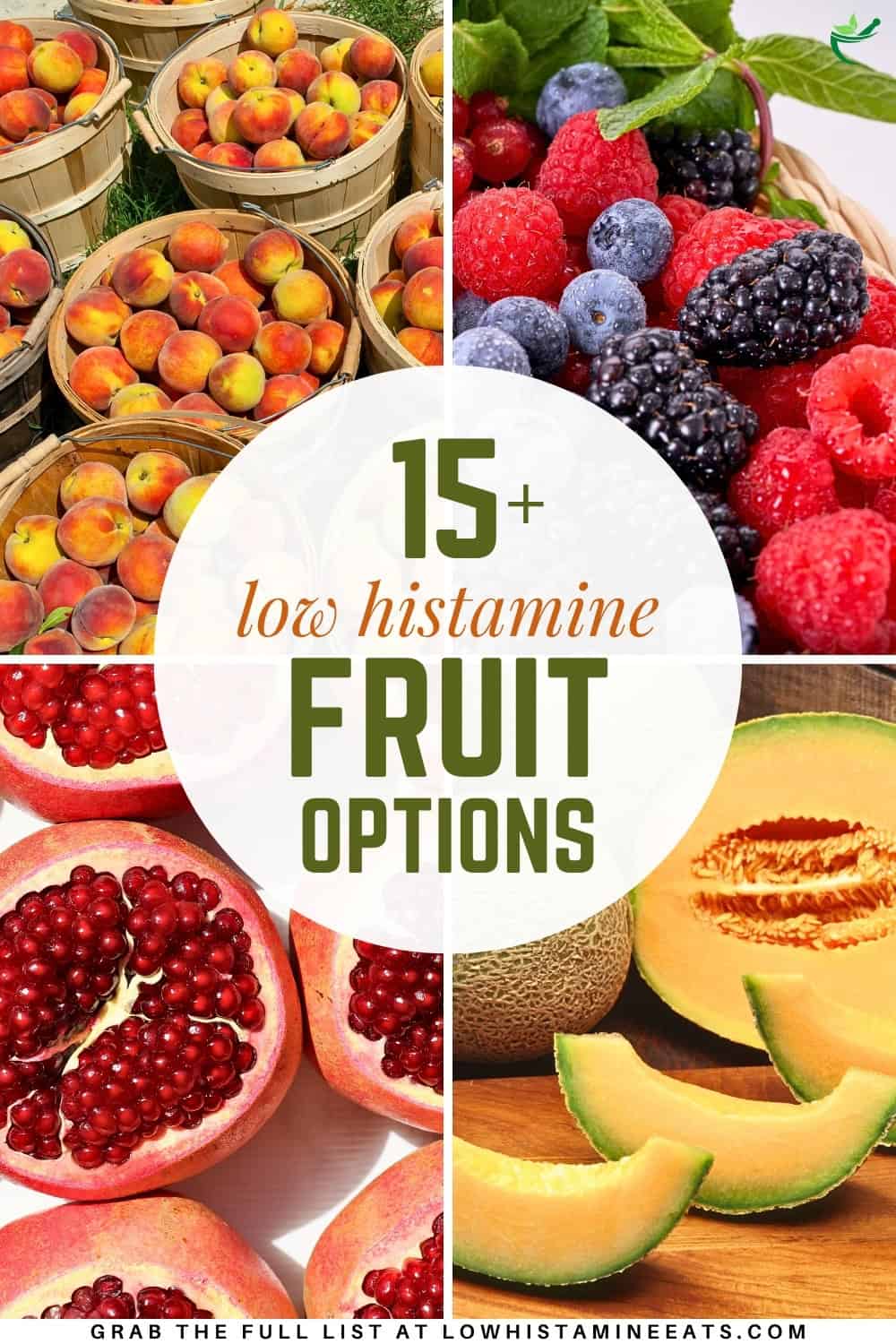
Jump to:
🍑 What Makes Some Fruits High Histamine?
If you've ever had a bunch of blackberries begin fermenting in your fridge, you're not alone. If left to their own devices, fruits will start breaking down— rotting— within a few days. Some fruits tend towards ripening rather than rotting, and while a ripe peach is better than a rotten one, neither is ideal for histamine issues.
This is because the longer a fruit sits around, the more bacteria it's exposed to, and many types of bacteria produce histamine as a by-product of their own digestion. For some people, the bacteria are already inside them over-producing histamine.
So when they eat high-carb foods like fruits, this bacterial overgrowth foods on the sugars and produce histamine (known as SIBO). Yet even some unripe fruits are still considered high or moderate in histamine.
As discussed in the high histamine foods list, most of the supposedly high histamine fruits are off-diet due to indirect histamine increases rather than directly containing histamine. In fruit much of this is due to the 'histamine liberator' effect, often discussed and rarely explained in the field of histamine intolerance.
In short, the idea is that certain foods “release” histamine from other foods. The theory is based on chemical-isolating studies done in the 1950’s and ’60’s, which found that some participants experienced histamine release when they consumed specific foods (all of which were otherwise known to contain low levels of histamine).
Although this idea of histamine liberators has since proliferated, no recent studies have been done to try to replicate these results. Yet from those studies alone, dozens of foods have been added to the SIGHI high histamine list, and many people continue to avoid them.
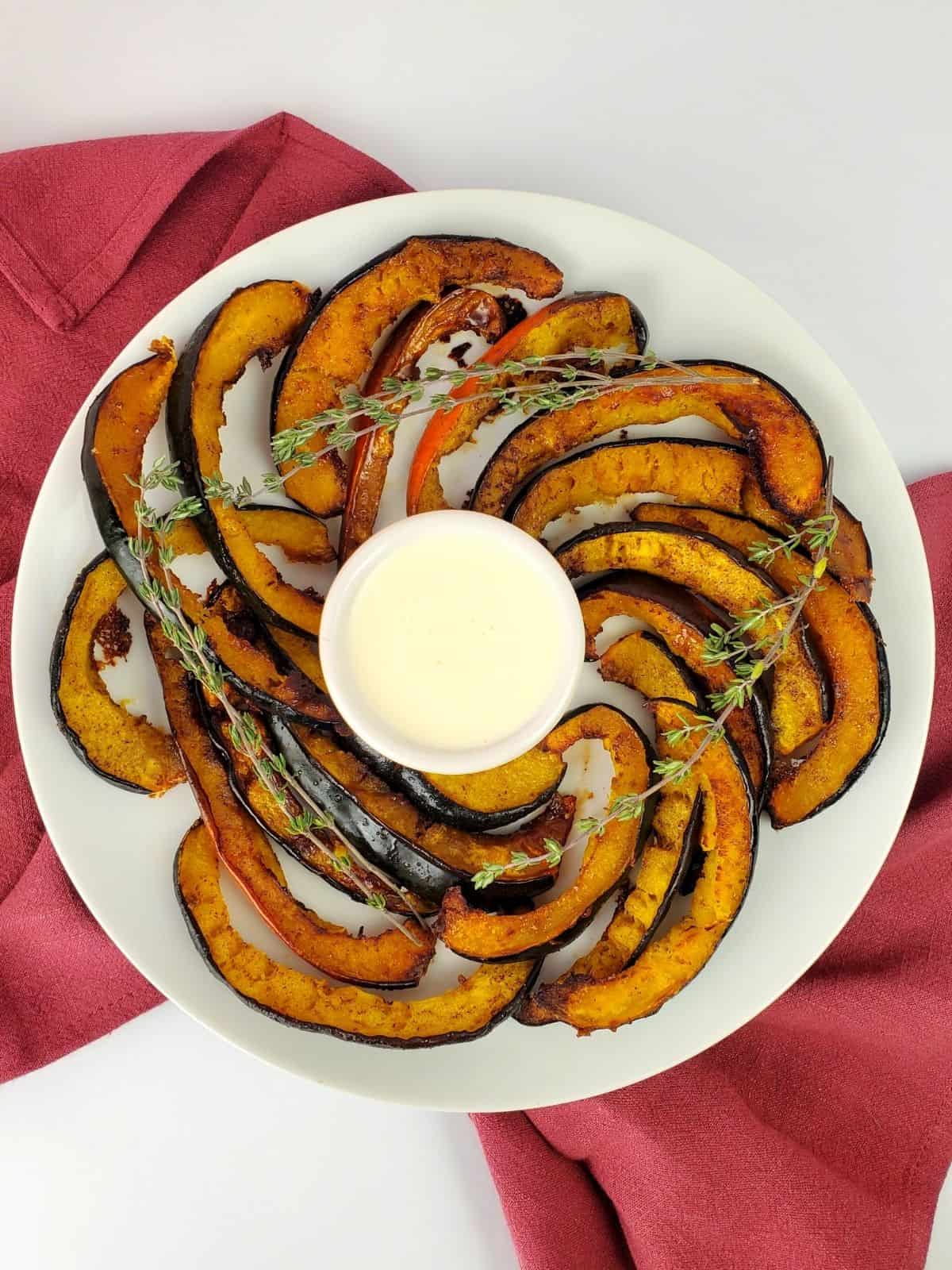
🍌 Medium & High Histamine Fruits List
The below-listed high histamine fruits are labelled as such either because they legitimately contain high levels of histamine, or because they theoretically “release” histamine from other foods (histamine liberators).
- Any very ripe fruits
- Avocado
- Bananas
- Citrus fruits (grapefruit, lemon, lime, orange, etc.)
- Dried fruits
- Loganberries
- Olives (preserved)
- Papaya
- Pawpaw
- Pineapple
- Plums
- Strawberries
- Tomatoes
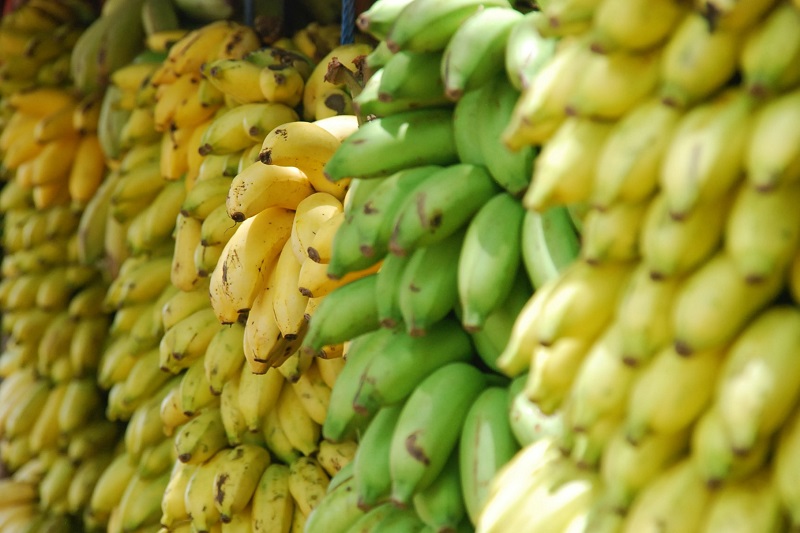
🍎 How Can You Keep Fruits Low in Histamine?
It can be disheartening to buy a fruit you know you tolerate, and suddenly have a reaction. Could it be the pesticides used on the farm? Poor storage conditions? Oral allergy syndrome?
To avoid all the most common pitfalls, ones I've even fallen into, below are my top 5 tips for keeping fruits low histamine rather than losing them to time.
- Source fresh, local fruits. It may sound obvious, but I don't mean the fruits from your local grocery store. Try to source all your fruits and vegetables from your local farmers when possible, to minimize the distance from farm to table (plus it supports the local community!).
- Buy organic. If you can't buy local produce, at least try to buy organic when purchasing the infamous dirty dozen.
- Eat seasonally. This can be understandably hard in the winter, but try your best to eat the fruits that are in season in your area. Even if all the fruits at your local grocer's isn't from your region, they're more likely to come from nearby, and it may be easier to find a local, direct source.
- Store fruits properly. For most fruits, keeping them on the counter and eating them just under peak ripeness is fine, but when a fruit starts to ripen, you should eat it immediately or refrigerate it for a few more days.
- Eat when less ripe. This generally means using them in some more savory recipes, and relying on less inflammatory sweeteners when needed, like monk fruit or stevia.
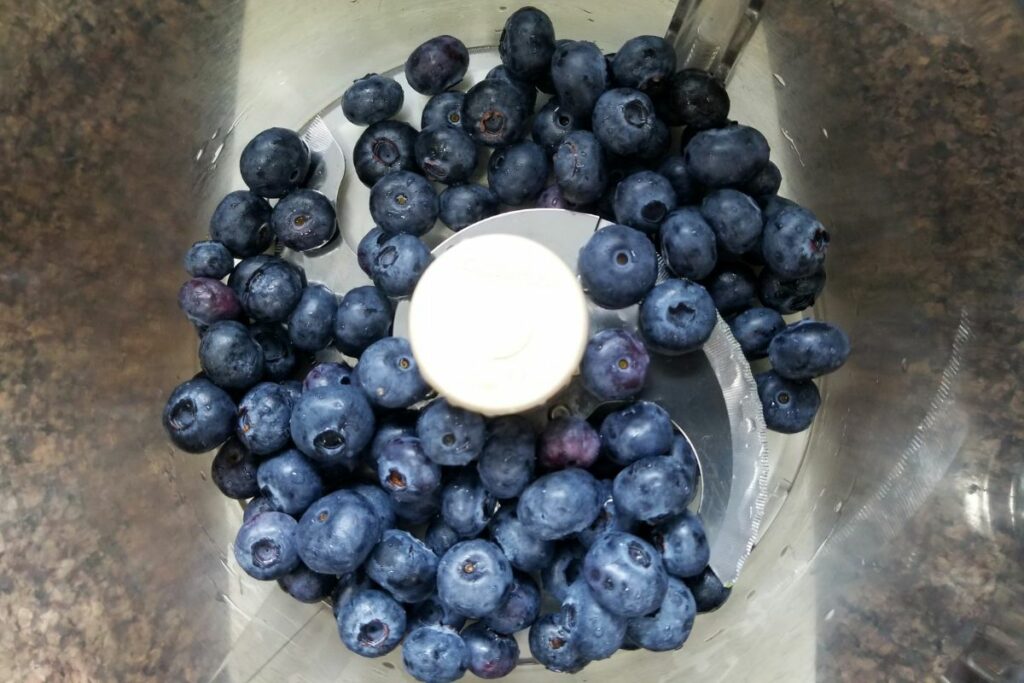
🤔 What Fruits Are Low Histamine?
There are hundreds of types of fruit out in the world, but the info on the histamine levels in fruits that are less common is, well, much less common.
So below is a list of low histamine fruits whose impact upon our histamine response is not just minimal, but is often beneficial. Note that berries (including kiwi) & citrus tend to be higher oxalate, so if that's an issue for you, then consider starting with stone fruits.
- Apples
- Apricots
- Blackberries
- Blueberries
- Cantaloupe
- Cherries
- Coconut (fresh)
- Cranberries (fresh)
- Currants (fresh)
- Dragon Fruit
- Kiwis
- Mangoes (fresh or frozen)
- Peaches
- Pears
- Persimmons
- Pomegranate
- Raspberries
Do you have a favorite low histamine fruit to bake with or snack on? Drop it in the comments below, and let us know your favorite way to eat it!

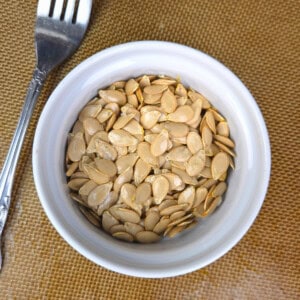
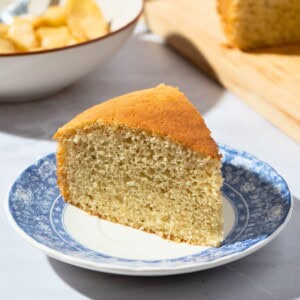
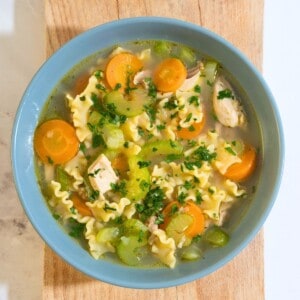
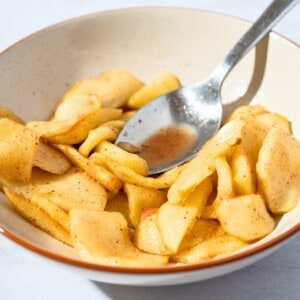
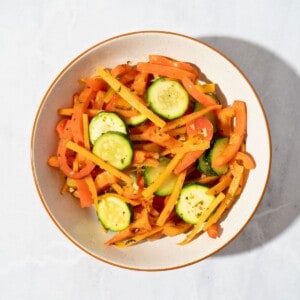
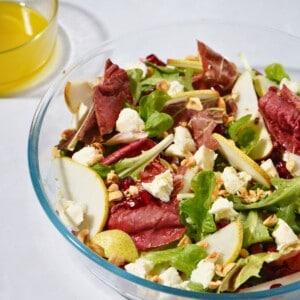
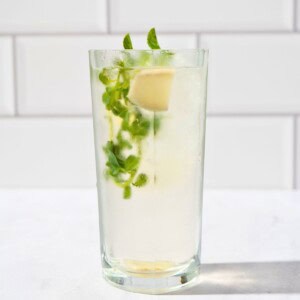
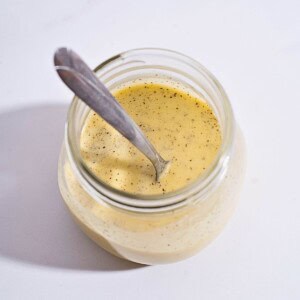
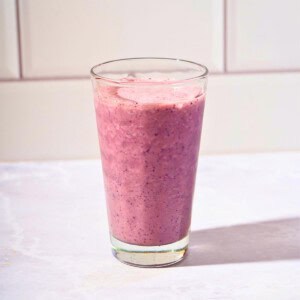
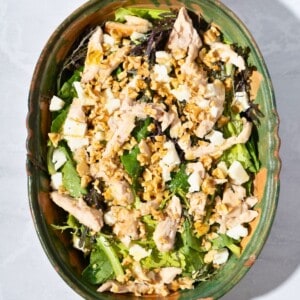
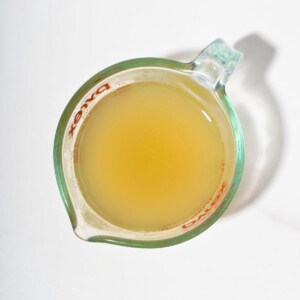
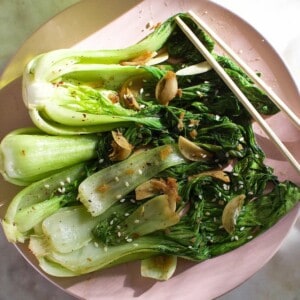
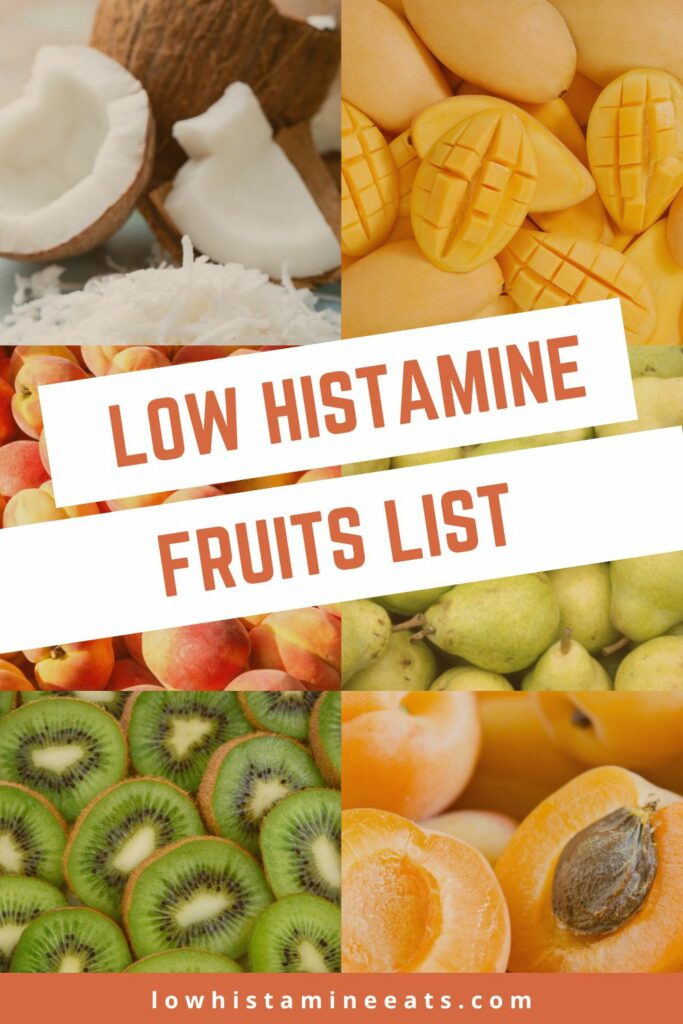
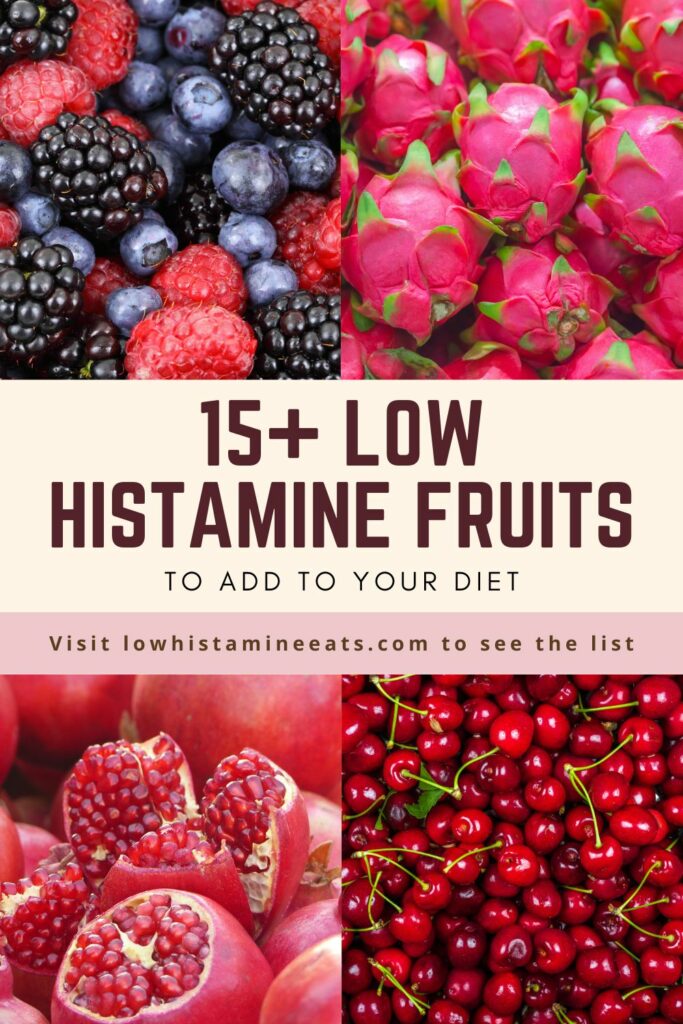
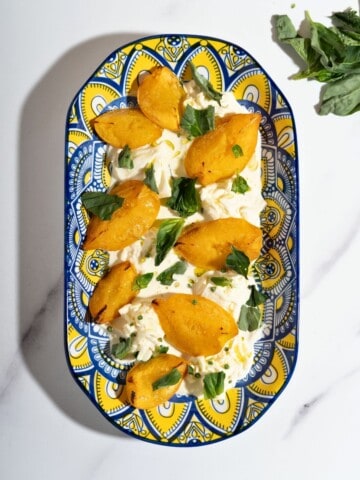
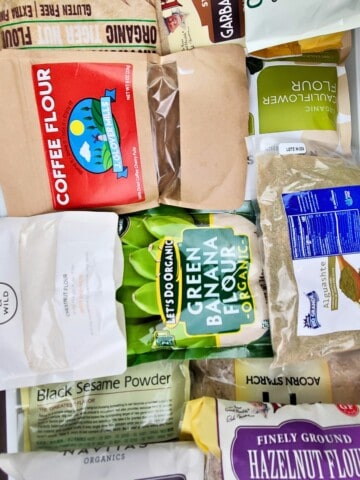
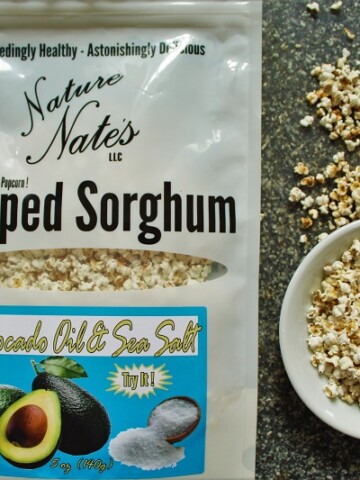
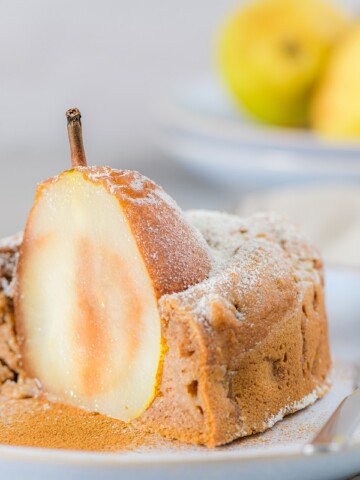
Laura says
I made a passionfruit dressing recently when I was desperate for something but couldn't use lemon or ACV. It was so good! I think it just had olive oil, salt, pepper, and maaaaybe an herb, not sure.
Max says
That sounds delicious, I'll have to try that next time I have access to fresh passion fruit!
Jules says
Hi, Thank you for your types and advice . I already knew I have had some problems , IBS , hiatus hernia but despite being careful , I still was having a lot of problems , stomach , bowel and acid reflux as well as very many reactions to foods , medications , even pollen and air sprays and yet an allergy test said I was ok , they said it's a sensitivity and sometimes just have to take medication as long as its not a true allergy , yet the chest pain after antibiotics , I really thought I was not going to survive it , I was very low and felt nobody believed me . I have been like this for years , my diet got to the same food every day . Then after getting Long Covid , I was sent to see someone for it , not only did they listen , they asked very many questions about my reactions to the Sensertivites , eventually I got diagnosed with Mast Cell Activation Syndrome , unfortunately , her job didn't allow me to carry on seeing her. I had a diagnose but not what to do about it. The GP were told but no help or advice has been given. I started putting down all the foods that make me ill , 80% comman factor is histamine , others though in themselves don't have histamine , the mast cells can react to them which makes your body produce histamine causing problems . It's very very difficult to safely eat , drink and take any medication when ill , it's like walking a tightrope. At the moment I am in a lot of pain after trying some medication for the acid , I can't take the Omeprazole group nor the Cimitidine group , I had been on Ranitidine since my teens and possibly because my body was used to it , at a small dose it allowed it , or maybe because it was a bit different from the others but that got banned , hence I'm really struggling with stomach pain. Thanks for reading this , any more tips would be much appreciated.
Max says
Jules,
This sounds like it's been an incredibly harrowing and demoralizing experience for you, and for years on end. I'm so sorry you've had to deal with all of that. But it does sound like you've started to sort out a lot of your triggers and figure out your own way around a lot of your issues, at least for now, but it also sounds like it's getting worse. Unfortunately I'm not a doctor, so I warn you that this is not medical adice but just my own personal research and experieince that say it sounds like your mast cells are also reacting to stress.
I have MCAS and the more stressed I am, the more reactive I am, irritable, pained, and fatigued. My joints always hurt more and my period pains are worse. When we're stressed, and for long, prolonger periods, our immene system gets the message and feels stressed, too. Our mast cells stay on edge and overreact to everything, and make any exiting allergic reactions more dramatic. I recommend you cut stress as much as possible (easier said than done, I know), pick 5 ways to keep calm from this list (start with one, then add in one more each day until you're doing all five), and then find a daily antihistamine that works for you and take it regularly. Give each one at least 3 days, if you can, before deciding whether they have side effects for you. Then add in as many actively antihistamine foods as you can tolerate.
-Max
sean says
hi Jules, who was the doctor that actually listened to you for long covid?
thank you , sean
Michele says
I was also on ranitidine and had hardly any allergy reactions, but since it was taken off the UK meds market I have struggled. I also cannot operate cinetidine or omeprazole . I was diagnosed with angioedema , but I feel its MAST cell Activation syndrome. I cannot drink or take meds with alcohol in it. I cannot eat bananas , banana bread, I am gluten free. not dairy free - I crave dairy but cannot tolerate ripe cheeses - strong cheddar or mature cheddar. I can drink milk and have some cream . but finding the older I get the more I appear to have reactions to too much dairy 🙁 I am being referred to dermatology to get a diagnosis. who did you see to get a diagnosis ? I live in coventry. :/
Jody says
I’m very appreciative of your Low Histamine food list! My frustrations lay with the difficulty that I also need to follow a Low FODMAP Diet as well, along with being Gluten Free! It’s so difficult planning a meal and figuring out what is safe to eat, going back and forth between low histamine/low FODMAP lists. It’s almost easier not to eat!
I wish there was a place where a site that was geared towards helping people who need to follow both diets! Are you able to give me any suggestions/direction?
Thank you for myself and all others suffering 💜
Max says
Oh, I've been there; I did low histamine low FODMAP at the end of last year for 2 months, and the restrictions seriously almost killed me. Right after that I was about to give up and just... I don't know, I was just really over everything. Low FODMAP made no difference for me, unfortunately. Then I tried a low histamine version of the Deflame diet (no grains and very little sugar & refined oils), and wow did that transform my life.
I'm sorry that there are so many restrictions going on for you, but everything on my site is low histamine & gluten free (any optional higher histamine things or things which can sometimes trigger people regardless of histamine level are clearly marked). I haven't had time to go through and mark everything for secondary diet measures (paleo, keto, low FODMAP, etc.), but I can tell you that you'll only need to compare one list for now, and hopefully you won't be fully low FODMAP for long. Sending big, big hugs your way!!
Anne says
@Jody, I also have the very same diet concerns as you. One of the frustrating aspects is various websites have conflicting information. This website says kiwis are fine but Fig says they are high in histamines. The best approach is to use a diary and start with a limited diet and add as tolerated. It is not easy, but eventually you should be able to determine what your body tolerates. I definitely make sure to take high quality vitamins and mineral supplements to make up for shortages in my diet and eat organic ingredients that I cook myself. No packaged foods. Good luck!
Jules says
Hi, If it's any help , I have also found if something appears to be ok , have something different for a few days , if I have something now and then , I get away with it , if I get to day three , it's like your body has thought about it , then actually , no , then makes you ill . I hope you are well , take care.
Stacy says
Hi ladies,
I am 47 and after 20 years of suffering, was finally diagnosed with Celiac Disease. I am also instructed to eat low-histamine, low-fodmap and dairy free!! I'm really really overwhelmed.